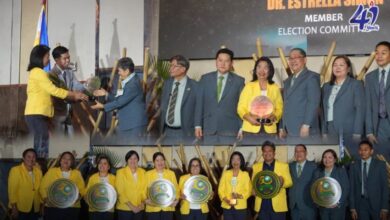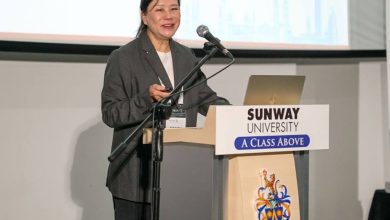Women are Powerful Agents of Change: Revisiting AppliedHE Fireside Chat Session

Fireside Chat Session 1 took place on 29 June 2020 and was moderated by Winnie Eley, Partner of Education Insight, United Kingdom with the following speakers: Vice Chancellor of Piedmont International University in USA, Prof Sandeep Gopalan; Head of influencing, advocacy and public engagement at Oxfam, Nigeria, Mrs Ramatu Umar Bako; Director of the Office of international affairs at Kyung Hee University, Republic of Korea, Mr Choon Hyun Kim; Managing Director of Red Emerald and Co-Founder of The IC Global Partnership in the United Kingdom, Ms Charlene Allen.
“An agent of change is someone who looks around and refuses to either focus on what someone else would do or simply rant about the way things are. They influence change and have a transformational effect on the world, on a community, on an organization or an institution. Women have been challenging the status quo and changing the world for hundreds and hundreds of years,” Ms Charlene Allen noted, as she set the tone for the discussion. “They [women change agents] are the people who look around and see something that can be done to reduce the collective suffering or add to the collective good of humanity, and [they] act upon it. They do things to make the world a better place.”
But what really makes women powerful agents of change? What makes them successful champions of reform and what is their ‘magic’? What gives them the ability to shape our world today, contributing to a better future for humanity?
In answering these questions, Mr Choon Hyun Kim shared about how equal opportunity for women in education, especially for mothers, have changed Korea. When Korea was still a kingdom “our GDP per capita was only about 15 US dollars, we had a military revolution and we were under a military government for quite a long time, over 20 years. Currently, our GDP per capita has grown to around 33,000 US Dollars [per capita] and you can see what women, especially mothers, have done in our society”.
Mrs Ramatu agreed with this observation. Quoting a famous phrase, Mrs Ramatu said, “When you train a man, you train an individual. But when you train a woman, you train a village”. Women have the ability to bring life and nourish a person with knowledge and emotional depth. Women bear the main responsibility to teach and nurture the future generation. A women’s primary role as caregivers and nurturers in society grants them a natural ability to communicate and empathize with others. This is one of the main reasons why women are such powerful agents of change. Right from the moment a child is born — a mother’s first touch will forever influence the way that the child interacts and sees the world. This is the ‘magic’ of women as powerful agents of change. “More women nowadays are working in jobs that used to be dominated by men. They are captains of industry, decision-makers and the likes”. Mrs Ramatu said. “Women are now able to achieve anything and everything that they put their minds to.” Mrs Ramatu continued.
However, the speakers also noted that women still face considerable barriers. As Professor Sandeep Gopalan noted : “one of the most important things we have to work on as a society and societies everywhere in the world is to make sure that there are more women in politics and especially in representative elected positions of power because having more women at the table when decisions and laws are made means you have more gender-cognizing and gender-neutral laws which actually allow for women’s attributes to flourish.”
Professor Sandeep Gopalan continued: “Today, in the United States, there are only a mere 26 women in the senate and only about 100 women in congress in the House of Representatives, so that’s only about 23 percent in Congress and 26 percent in the Senate.” He added that only 37 women are CEOs of the top 500 companies that constitute the Fortune 500 list, which is a mere 7%. This is an incredibly low number in the times that we are living in. Director Choon Hyun Kim agreed, and added: “Although our country, the Republic of Korea had a woman president and a prime minister, we have a very low percentage of high officials in many companies and institutes”.
The speakers all agreed that the most important solution to this problem was to highlight and tackle the underlying complex issues that have hindered the progress of many women to become powerful agents of change. Issues such as better childcare access, gender biases in the social and professional sphere, better access to transparency in hiring processes, are all areas that must be addressed more effectively. Solving these issues will be more effective in empowering women than simply providing shallow solutions. We need to change how we look at and treat traditional gender roles, to remove gender biases from youth. Because real change needs to start from youth.
However, it is undeniable that women have contributed more changes to the world nowadays than ever before. Ms Charlene Allen stated some historical examples of women who were powerful agents of change — Rosa Parks refused to give up her seat as a sign of protest sparked the wave of civil rights movement in America. Emmeline Pankhurst founded the women’s social and political union that inspired thousands of women to demand their democratic right to vote. Frida Kahlo was a Mexican artist who was an important figure for social causes including feminism and LGBTQ rights.
A female role model is any woman you look up to. She can be any woman who makes a difference whether in the little things that she does or in everyday life or the grand gestures made in the public eye.
To watch the discussion in full, please view the recording here: https://bit.ly/2FLkJGU




